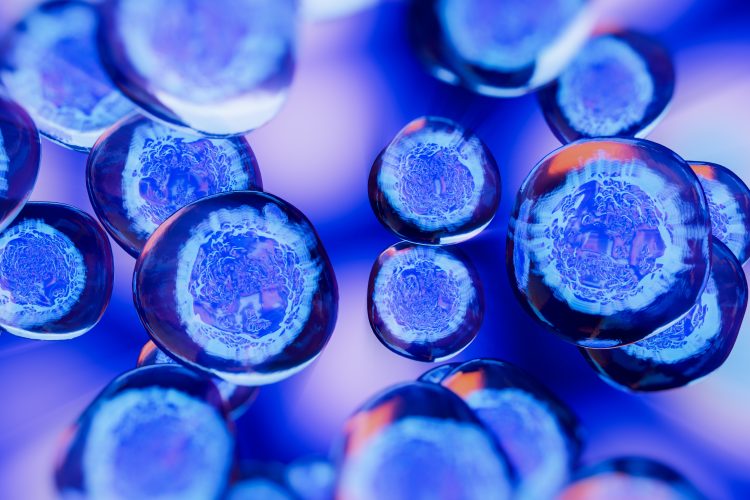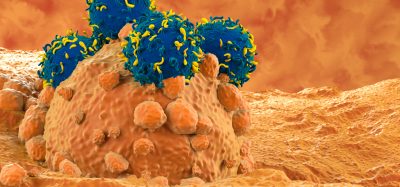Transforming biotherapeutics delivery for local communities
Posted: 21 May 2025 | Drug Target Review | No comments yet
Vitalant is transforming the path from preclinical drug discovery to patient care by enabling access to cutting-edge cell and gene therapies. With decades of expertise and a nationwide network, find out how they bridge the gap between innovative treatments and local communities, ensuring life-changing therapies reach patients efficiently.


In an era where biotherapeutics are transforming the healthcare landscape, the organisation, Vitalant, is uniquely positioned to bridge the gap between cutting-edge therapies and community access. With decades of expertise and a deeply rooted presence in healthcare networks across the country, Vitalant is not just supporting the rise of novel therapies, it’s actively enabling them.
At the forefront of this mission is Senior Vice President of Vitalant, Becky Butler Cap, whose career has been long defined by a passion for building new services and treatment options in emerging markets. From early work in bone marrow transplants at Dana Farber to commercialising new therapies like Gleevec and Keytruda, her career path has been defined by innovation. Today, her focus is on cell and gene therapy (CGT), and ensuring these life-changing treatments are accessible to patients, no matter where they live.
“Vitalant offered the opportunity to contribute to the development of the cell and gene therapy market in a way that overcomes barriers to patient access in the community,” she says. “Building new services and treatment options for patients are a passion for me.”
Biomarkers aren’t just supporting drug discovery – they’re driving it
FREE market report
From smarter trials to faster insights, this report unpacks the science, strategy and real-world impact behind the next generation of precision therapies.
What you’ll unlock:
- How biomarkers are guiding dose selection and early efficacy decisions in complex trials
- Why multi-omics, liquid biopsy and digital tools are redefining the discovery process
- What makes lab data regulatory-ready and why alignment matters from day one
Explore how biomarkers are shaping early drug development
Access the full report – it’s free!
A strategic vision rooted in community and capability
Vitalant’s vision is bold: to become an indispensable partner in the development and delivery of novel biotherapeutics. With the organisation’s 80-year history serving hospitals and communities, they are now expanding their impact in the CGT space. With a strong infrastructure and a reputation for reliability, Vitalant provides collection, processing, storage, and testing services – everything necessary to ensure high-quality therapeutic products reach patients safely and efficiently.
In the preclinical phase, where identifying and validating promising therapeutic candidates is crucial, Vitalant’s expertise in handling biological materials can significantly streamline the biomaterial collection process. Their services ensure that high-quality starting materials for in vitro and in vivo studies are collected, processed, and stored under strict conditions. These materials are vital for researchers working on drug candidate identification, early-phase biologic testing, and mechanism-of-action studies, ultimately accelerating the drug discovery pipeline.
Accreditations from the Association for the Advancement of Blood & Biotherapies (AABB) and the Foundation for the Accreditation of Cellular Therapy (FACT) further enhance Vitalant’s credibility. This makes it a natural partner not only for therapy developers seeking agile, scalable solutions but also for hospitals aiming to deliver complex therapies closer to home.
“Vitalant acts as the connective tissue between therapeutic developers and hospitals,” Becky explains. “It allows clinicians to focus on patient care, while developers can remain centred on the unique requirements of their products.”
A network of networks: rethinking collaboration in biotherapeutics
Perhaps one of the most transformative ideas Vitalant is advancing is the concept of blood centres acting as a “network of networks.” In this vision, regional blood centres can evolve into decentralised hubs for CGT delivery. This reduces the need for every hospital to invest independently in specialised infrastructure.
Patients want to receive care in their community, but many communities lack the physical and personnel infrastructure to support that offering.
“The opportunity is enormous,” she says. “Patients want to receive care in their community, but many communities lack the physical and personnel infrastructure to support that offering. A small investment is required to fully develop that infrastructure in a blood services organisation, rather than making infrastructure investments in each-and-every hospital.”
Blood centres already navigate complex logistical and regulatory challenges in managing the national blood supply, with biological therapies that must adhere to stringent guidelines similar to those governing CGTs. Extending these systems to support advanced therapeutics is not just logical, it’s practical and cost-effective.
From blood to breakthroughs: providing the foundation for CGT success
At the heart of many cell and gene therapies lies a simple but critical component: high-quality starting materials, and this is where blood centres already excel. From apheresis services to supporting oncology and transplant patients, the step toward CGT collections, like those needed for CAR T-cell therapy, is a natural progression.
Additionally, Vitalant is actively supporting early-stage research by collecting material from specific donor populations and facilitating autologous and allogeneic product development. As demand grows, these capabilities are becoming even more essential.
The future role of blood centres in biotherapeutics
Looking forward, the role of blood centres in the biotherapeutics ecosystem will only deepen. With hospitals facing space and staffing constraints, blood centres can serve as specialised extensions, handling the complex logistics of therapy preparation and delivery, and reducing the cost burden on both institutions and patients.
“I see blood centres as becoming critical enablers for cell and gene therapies, performing core clinical services that are crucial for therapy.” Becky predicts. “As manufacturing equipment is developed and refined, I see a role in manufacturing for blood centres that are able to staff a cGMP model.”
I see blood centres as becoming critical enablers for cell and gene therapies, performing core clinical services that are crucial for therapy
This model, which uses controlled, not classified (CNC) environments for production, could drastically reduce the need for costly clean rooms and long-distance shipping, while ensuring therapies are produced and delivered rapidly and safely. But realising this vision will require coordinated efforts across the industry.
Becky explains: “This is a significant transition in the space that will require alignment of therapeutic developers, equipment developers, regulators and operators. I think blood centres offer the ideal environment to support and drive this innovation.”
Vitalant’s story is more than one of adaptation, it’s one of passion to evolve the medical landscape. By transforming trusted community infrastructure into engines of innovation, Vitalant is set to redefine what accessibility and excellence look like in the age of cell and gene therapy.


Becky Cap joined Vitalant in 2024 and oversees the creation and growth of innovative service lines to support the development of novel biotherapeutics for patient care. As senior vice president, she is responsible for Vitalant’s portfolio of services for biotherapy developers, including product sourcing, processing, storage and management. Prior to joining Vitalant, Cap held executive, research and consulting roles in the life sciences industry. Cap holds a bachelor’s degree from Harvard University and an MBA from Boston University Graduate School of Management.
Related topics
Biopharmaceuticals, Biotherapeutics, Cell Therapy, Gene Therapy, Translational Science
Related organisations
Vitalant
Related people
Becky Butler Cap (Senior Vice President of Vitalant)








